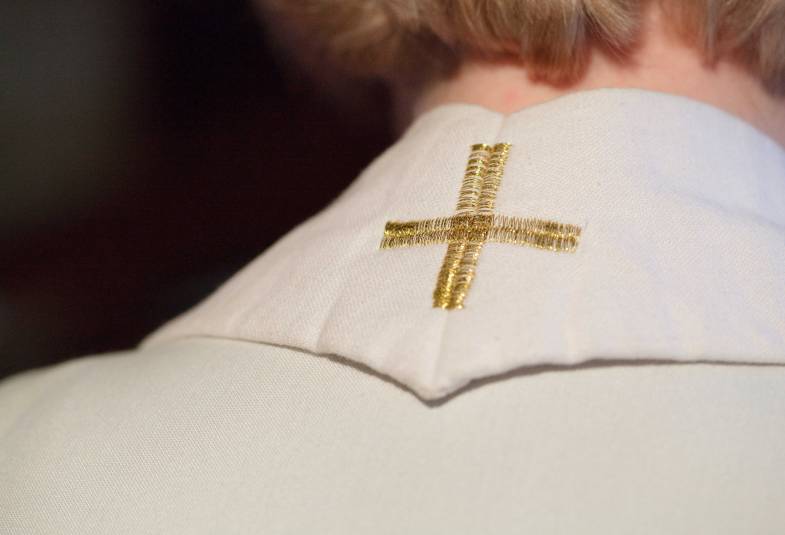
Appointments Committee
The Appointments Committee is a commission of the General Synod and the Archbishops' Council. It is responsible for making such appointments and/or recommendations on appointments to synodical and other bodies as the Synod or the Archbishops' Council require.
The type of appointments for which they are responsible, include appointments to synodical bodies (such as legislative steering or revision committees), the Standing Orders Committee among others, and the Boards, Councils and Committees of the Archbishops' Council.
They are also responsible for appointing representatives of the Synod on the governing bodies of theological training institutions, governing bodies of mission agencies (Partnership for World Mission), representatives of the Church of England at ecumenical conferences, and at the governing assemblies of other denominations.
Business Committee
The Committee is responsible for organising the agenda of the General Synod, enabling it to fulfil its role as a legislative and deliberative body. Many of its policies are available on the Members' Resources page.
Clergy Discipline Commission
The Clergy Discipline Commission monitors the exercise of discipline and highlights and encourages best practice.
Crown Nominations Commission
The Crown Nominations Commission (CNC) considers vacancies in diocesan bishoprics in the Provinces of Canterbury and York, and candidates for appointments to them.
At each meeting of the Commission, the Chair is taken by the Archbishop of the Province for the vacancy under consideration.
The Commission identifies two candidates suitable for appointment, whose names are submitted to the Prime Minister by the appropriate Archbishop or, in the case of the Archbishopric of Canterbury or York, by the chair of the Commission.
The names submitted are given in an order of preference decided upon by the Commission and the Prime Minister will submit the first name to Her Majesty The Queen for approval.
In 2016, the Archbishops of Canterbury and York commissioned a theological review of the CNC's work. The review is currently underway and more information is available.
Dioceses Commission
The Dioceses Commission considers matters such as the reorganisation of diocesan boundaries, the creation and revival of suffragan sees, and the transfer of episcopal functions by diocesan bishops to suffragan and assistant bishops. The Diocese Commission was was established in 2008 under Part II of the Dioceses, Pastoral and Mission Measure 2007 and reports to the General Synod.
Faith and Order Commission
The Faith and Order Commission advises the House of Bishops, the General Synod and the Council for Christian Unity on ecclesiological and ecumenical matters and acts as a theological resource for the Church of England as a whole.
Fees Advisory Commission
The Fees Advisory Commission makes recommendations as to certain fees to be paid to ecclesiastical judges, legal officers and others, and embodies those recommendations in Orders which are laid before the General Synod for approval. If approved, the Orders take effect unless annulled by either House of Parliament, and are published as Statutory Instruments.
The Fees Advisory Commission is constituted under Part II of the Ecclesiastical Fees Measure 1986, as amended by the Church of England (Miscellaneous Provisions) Measure 2000 and the Ecclesiastical Fees (Amendment) Measure 2011.
Legal Advisory Commission
The Legal Advisory Commission gives advice on legal matters of general interest to the Church which are referred to it by the Archbishops' Council and its Divisions, Boards, Councils and Commissions, by the General Synod and its Houses and Commissions, by the Church Commissioners and the Church of England Pensions Board, and by diocesan clerical and lay office holders.
The Commission cannot accept requests for advice from private individuals or secular bodies. In addition, the Commission cannot normally give opinions on contentious matters, but it may be able to do so (depending on the circumstances) if the facts are agreed by all parties to the dispute, all parties join in referring the matter to the Commission for an opinion and it is not (and is not expected to become) the subject-matter of proceedings in the courts.
The opinions of the Commission and its predecessor, the Legal Board, on matters of general interest are published by Church House Publishing under the title Legal Opinions Concerning the Church of England.
Legal Aid Commission
The Legal Aid Commission operates under the Church of England (Legal Aid) Measure 1994, and administers the Legal Aid Fund which was originally set up under the Ecclesiastical Jurisdiction Measure 1963 and is continued by the 1994 Measure.
Legal aid under the 1994 Measure may be granted, subject to various conditions, for certain types of proceedings before Ecclesiastical Courts and tribunals; details of eligibility for legal aid and the Commission's procedures, together with an application form for legal aid, are obtainable from the Secretary, on request.
Legislative Committee
The Legislative Committee was established and is required by law (the Church of England Assembly (Powers) Act 1919) and included the Constitution of the General Synod. Amongst other things, it is responsible for submitting Measures to Parliament for approval once they have received final approval by the General Synod.
Liturgical Commission
The Liturgical Commission prepares forms of service and promotes the development and understanding of liturgy and its use in the Church.
Rule Committee
The Rule Committee is empowered by statute to make rules for a wide range of ecclesiastical purposes, including the Faculty Jurisdiction Rules and the Clergy Discipline Rules. For details of their powers, see s. 83 of the Ecclesiastical Jurisdiction and Care of Churches Measure 2018. All rules made by the Committee must be laid before the General Synod and do not come into force unless approved by the General Synod, which may amend them (see s. 83(9) and (10) of the 2018 Measure).
Standing Orders Committee
The Standing Orders Committee keeps under review the procedures and Standing Orders (rules) of the General Synod.